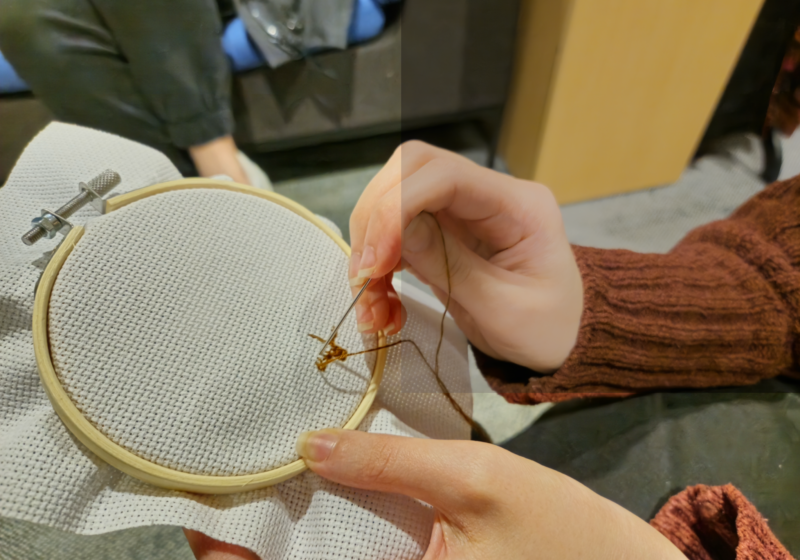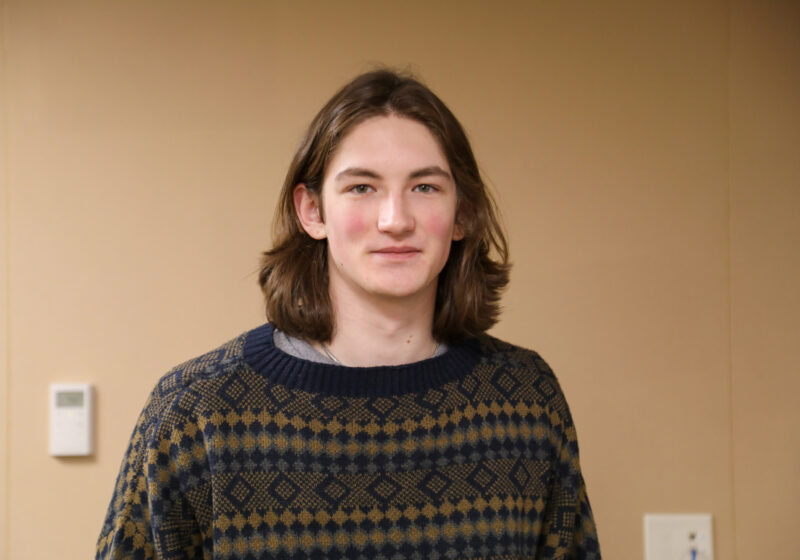After being introduced, Irene Taylor came to the podium, and there wasn’t a sound. Instead, there was an audience of people waving their hands in the air. They were not waving hello to the speaker ?this is the way to applaud in American Sign Language.
The majority of the audience at Taylor’s presentation was deaf. They signed excitedly to each other as she took the podium and began to speak. The presentation was entitled “The Making of ‘Sign City’: A Documentary Process.” It was not only the story of the making of the two part series that aired on CBS Sunday Morning, but about the deaf community of Rochester and the expansion of awareness about this community to the hearing world.
Taylor grew up with two deaf parents, and was used to life in the world of sign language. She never thought her future career would end up involving the deaf, but she said, “It seems to be a theme in my life I keep coming back to.”
Later on, she ended up in Nepal for four years, learning about Nepalese sign language and compiling a book of her “photojourney.” She returned to the United States and completed her masters at New York University. After various positions, she ended up at CBS, where she has been for more than a year.
The project of her production “started as a simple and straightforward story,” Taylor explained. “[The plan was] to make a documentary portrait of one family’s day to day life and their two children and how they were educating them.”
After receiving the go-ahead, Taylor and a team of sound and video people headed to Rochester to begin filming. The crew shot for a couple days, taking footage at the Rochester School for the Deaf, at public schools, and obtained interviews with the local Matchett family, who was the focus of the story. “It took a little bit of getting used to,” Taylor said of the shooting. The crew had to use wider angles, as they had to focus on the deaf person’s hands as they were signing as well.
Taylor returned to New York and presented the footage to her producer, who eagerly wanted to expand the project, but with the inclusion of a look at the whole Rochester deaf community, feeling that not enough people were educated on this issue. Taylor said her executive producer reminded her she had to “back up and remember there are five million viewers who know nothing about this.”
The team brainstormed and came up with many new ideas for expanding the story. “The story kept getting bigger and bigger,” she said. “The executive producer got more and more excited.”
The story was split into a two-part series and Taylor agreed to once again to go up to Rochester and film.
Taylor returned to Rochester with her crew, a correspondent and new ideas for expanding the project. For the most part Taylor let the film speak for itself, showing raw footage of a book club discussion with a local English professor, Karen Christie and correspondent Martha Teichner, who sat in and led the discussion. Local actor and poet Patrick Graybill was also there, performing what is known as ASL poetry ? signing poetry with your body and facial expressions as well as sign language.
The group discussed how the deaf acquire language skills and how there is eloquence in the world of sign language. Patrick Graybill himself explained that a native speaker’s movements become refined. “[The] hand shapes [of] a native signer are beautiful,” he signed. “ASL is my native language. It’s what I own. I love it.” His poetry is his form of communication and he said “It is in me. It is my goal to communicate.”
More raw footage was then shown of Taylor interviewing Karen Christie on the issue of interpreters. Christie talked about their roles in the community, and how it is an ever-growing profession in Rochester. As a professor, Christie said she has to “learn to trust an interpreter. They are my voice.”
The interpreter, when asked if it was a major business, responded, “Absolutely. It’s a very big business.” She said there were 300 interpreters in her company alone, and many are used in hospitals, courts, at RIT and other places.
Taylor then showed part one of the series, the actual 13 minute clip that ran on CBS Sunday Morning, where everything came together. The first part explained the history of the deaf in Rochester, with the formation and growth of the school for the deaf, as well as the popularization of ASL in the deaf community. Clips of the book club discussion were shown, and the show then focused on certain members of the community, highlighting a local deaf doctor’s medical practice as well as a local family with two deaf children.
The project took over a year to finish and Taylor acknowledges this project as what helped to get her career moving. “I got my job at CBS because I pitched this story,” she said.
Taylor reflected on the project and realized that she was so used to the deaf community, she didn’t see things as an outsider would. “I was so used to looking at individual people I forgot the people in the Rochester community are so unique,” she said.
Linden can be reached at klinden@campustimes.org.



